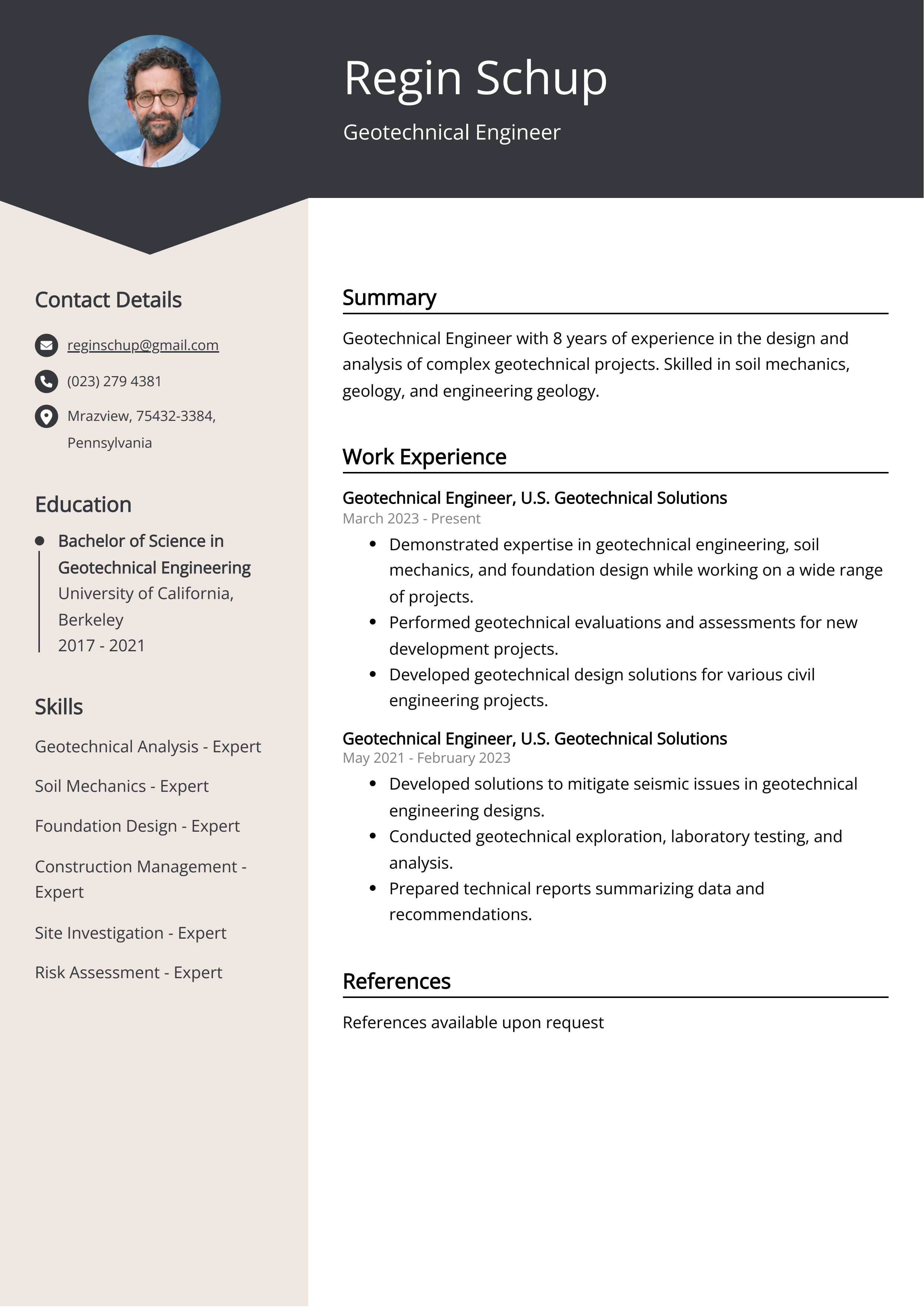9 Easy Facts About Geotheta Explained
9 Easy Facts About Geotheta Explained
Blog Article
Some Known Details About Geotheta
Table of ContentsThe Facts About Geotheta UncoveredSome Known Questions About Geotheta.A Biased View of GeothetaGeotheta Fundamentals Explained
They work together with civil engineers, structural engineers, designers, and other professionals to integrate geotechnical considerations into the general job layout and building process. This calls for reliable synergy, control, and interaction to make sure that the geotechnical elements straighten with the job goals and fulfill regulatory needs.Mining & Products Engineering: Concepts of boring, penetration prices, and elements affecting the choice of exploration technique. Blasting methods in surface area and below ground functions. Mechanical and constant methods to fragmentation, consisting of longwall shearing and fullface boring.
Integrated evaluation of fragmentation and comminution procedures. Used by: Mining & Materials Engineering.
The Single Strategy To Use For Geotheta
Bachelor's degree programs in civil, geotechnical, geological, and environmental design usually last 4 years and consist of basic education programs in English, social scientific research, and the liberal arts, along with training courses in advanced maths, architectural geology, and fluid mineralogy. (https://www.evernote.com/shard/s342/sh/0ddde0a2-417b-669e-3d11-8f53bf2073ba/dxCfPcosgpFcDl9WAXonEVeNbxWt1i_y0aMcgTcK_KXcXyxfIS3apQYAgA)
Geotechnical design entails the analysis of the soil and rock problems at a particular site, and their implications for the growth of that site. As a lot of frameworks rely upon the ground for support, it is without shock that a thorough understanding of the ground conditions, and the suitability of foundation systems, are essential to the long-lasting security and performance of the structure or framework.
Being experts in the examination of geological developments and ground behaviour, geotechnical designers perform scientific examinations and screening to understand the impact these geological formations may carry the design and building of structure, civil and facilities tasks. This proficiency is crucial for the style and construction of buildings, roads, tunnels, dams, bridges, and water system and sewer system.
The geotechnical team at Douglas Allies consistently seek advice from architects, design engineers, designers, and builders to make suggestions on style and advancement proposals to make sure that the constructed frameworks are accordingly designed for the ground conditions. The layout of footing systems needs to consider the weight of the structure, the capacity of the ground to support that weight together with movement resistances and reliable building and construction.
The Ultimate Guide To Geotheta
This job is substantially simplified by the use our Douglas Map geospatial system that makes this information easily obtainable in a simple to use internet browser user interface. A geotechnical engineer will certainly guide the exploration of boreholes and examination pits to accumulate dirt and various other samples, and additionally analyze surface attributes and ground exposures to create a geotechnical design of the subsurface problems.
Depending upon the project kind and ground problems ran into, research laboratory screening may among various other things analyze toughness, compressibility, reactivity and/or permeability of dirt and rock samples. Hereafter data is accumulated and collated, the outcomes are made use of for a geotechnical model of the site, which is commonly provided as areas across the site.

A geotechnical investigation naturally can just analyze the ground conditions at the locations drilled or excavated. Natural variants in dirt and rock problems can occur across a website and between examination areas. It is for that reason great practice that the geotechnical engineer be maintained throughout building of the job to provide on-site verification that the ground problems encountered are regular with the assumptions and suggestions provided in the geotechnical investigation record.
The Only Guide for Geotheta
Geotechnical engineers use their comprehensive expertise of dirt and rock to examine risk and address troubles on diverse facilities projectsGeotechnical engineering is a specialist branch of civil engineering which takes a look at the behaviour of earth materials and the application of dirt and rock technicians. Geotechnical Engineers. As a geotechnical engineer, you will certainly examine the physical, mechanical and chemical buildings of soil and rock in order to design structures, preserving frameworks and earthworks
Geotechnical design is carefully connected to and overlaps with, both engineering geology and ground design - https://dc-state.cataloxy.us/firms/dc-anacostia/geotheta.com.htm. It's feasible to be experts in geotechnics or help a geotechnical firm yet be referred to as an engineering geologist or a ground engineer. As a geotechnical designer, you'll need to: build and keep connections with clients and other professionals associated with the site, throughout each projectmaintain safety standards on site be mindful of expense implications when you make recommendationsstudy geological maps and airborne photographs from a variety of sources and from various time periodsexamine construction plans to see exactly how practical they are based on your look at here understanding of the siteinvestigate threats or geological risks for the sitesearch for environmentally delicate functions, such as garbage dump start to develop valid and expository ground modelsplan area investigationsdrill and evaluate samples of bedrock, dirt, groundwater and added materials monitor various other experts on sitesolve technological problems as they occur, such as unanticipated structures at drill sitesmonitor problems throughout and after construction to make certain structures are stable in the brief and lengthy termadding information gathered on site to your first researchcreating geotechnical calculations, illustrations, and 2 or three-dimensional computer versions interpreting the datamaking recommendations concerning the suggested usage of the site

Report this page